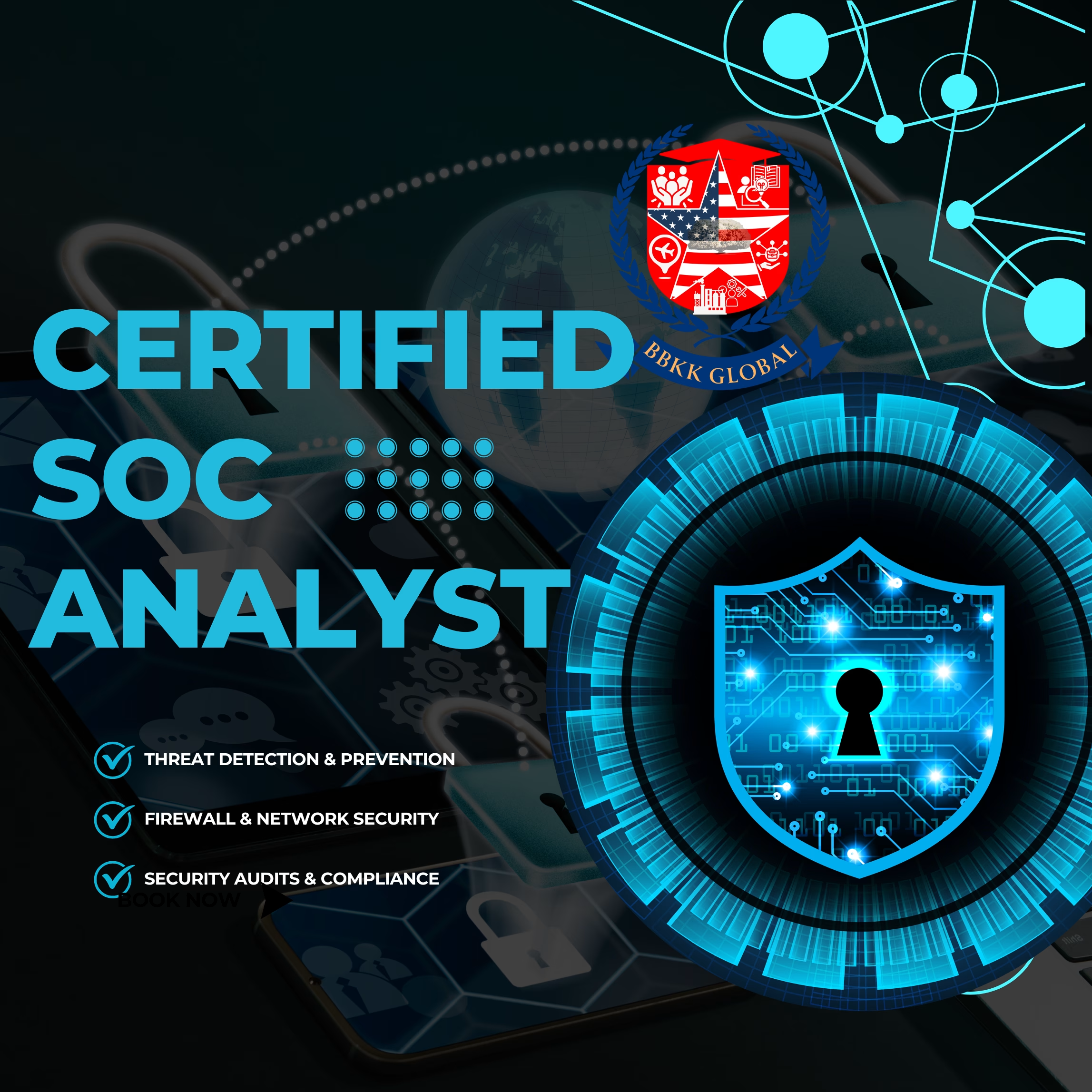Certified SOC Analyst (CSA)
About This Course
Certified SOC Analyst (CISA) Program: Your Path to SOC Excellence
The Certified SOC Analyst (CISA) program is a foundational step toward building a career in a Security Operations Center (SOC). Designed for current and aspiring Tier I and Tier II SOC analysts, this program equips participants with the skills needed to excel in entry-level and intermediate SOC roles.
What Does CISA Offer?
The CISA certification program combines rigorous training with globally recognized credentials. Delivered by experienced industry trainers, it helps candidates acquire trending, high-demand technical skills. This program is meticulously structured to provide a robust understanding of SOC operations while unlocking new career opportunities.
Key highlights include:
- Comprehensive Coverage: A 3-day intensive program that starts with SOC fundamentals and progresses to advanced topics like log management, SIEM deployment, incident detection, and response.
- Practical Skills Development: Hands-on training in managing SOC processes, using SIEM tools, and collaborating with CSIRT teams.
- Career-Ready Knowledge: Expertise in leveraging threat intelligence and predictive analytics for enhanced threat detection.
Why SOC Analysts Are Essential
As the digital landscape evolves, organizations face increasing cyber risks. According to the EY Global Information Security Survey 2018-19, nearly 6 in 10 financial service providers operate a SOC, underscoring the growing demand for skilled SOC professionals.
SOC teams play a pivotal role in delivering high-quality IT security services, actively detecting cyber threats, and responding swiftly to incidents. SOC analysts are the first line of defense, responsible for:
- Continuous threat monitoring and detection
- Alert triaging and escalation
- Validating intrusion attempts
- Enhancing security processes
Program Benefits
The CISA program emphasizes both elementary and advanced SOC concepts through a lab-intensive curriculum. Candidates will:
- Learn to deploy and operate SIEM solutions effectively.
- Gain expertise in threat intelligence and its predictive capabilities.
- Understand advanced SOC operations for 24/7 security monitoring, incident management, and network flow analysis.
Meeting the Challenge of Evolving Cyber Risks
With the increasing sophistication of cyber threats, organizations must combine advanced cybersecurity measures with traditional defenses. Establishing a SOC has become a critical solution, enabling enterprises to maintain robust security hygiene and manage vulnerabilities effectively.
SOC analysts ensure the smooth operation of core processes like monitoring, detection, analysis, and triaging. Without their expertise, these essential functions would falter, putting organizations at greater risk.
Prepare to become an indispensable member of a SOC team with the Certified SOC Analyst (CISA) program, and join the fight against cyber threats with confidence.
Learning Objectives of Certified SOC Analyst (CSA) Program
The Certified SOC Analyst (CSA) program is designed to equip participants with the comprehensive knowledge and practical skills required to excel in a Security Operations Center (SOC). Below are the key learning objectives:
SOC Processes and Threat Fundamentals
- Understand SOC processes, procedures, technologies, and workflows.
- Gain basic and advanced knowledge of security threats, attacks, vulnerabilities, attacker behavior, and the Cyber Kill Chain.
- Recognize attacker tools, tactics, and procedures to identify Indicators of Compromise (IOCs) for use in active and future investigations.
Monitoring and Log Analysis
- Learn to monitor and analyze logs and alerts from a variety of technologies across multiple platforms, including IDS/IPS, endpoint protection, servers, and workstations.
- Understand the Centralized Log Management (CLM) process for security events, log collection, monitoring, and analysis.
Security Information and Event Management (SIEM)
- Gain in-depth knowledge of SIEM tools and their administration, including platforms such as Splunk, AlienVault, OSSIM, and ELK.
- Acquire hands-on experience in the SIEM use case development process, including:
- Developing threat cases (correlation rules).
- Creating reports and dashboards.
- Learning widely used SIEM deployment use cases.
Threat Monitoring and Analysis
- Plan, organize, and perform enterprise-level threat monitoring and analysis.
- Monitor emerging threat patterns and conduct detailed security threat analysis.
Incident Response and Escalation
- Gain experience in the alert triaging process and learn to escalate incidents to appropriate teams when necessary.
- Learn to use service desk ticketing systems for efficient workflow management.
- Prepare detailed reports and briefings on analysis methodologies and results.
Threat Intelligence Integration
- Integrate threat intelligence into SIEM to enhance incident detection and response capabilities.
- Effectively utilize varied, dynamic, and constantly changing threat information for improved decision-making.
Incident Response and Collaboration
- Understand the incident response process and its role within SOC operations.
- Learn how SOC teams collaborate with Incident Response Teams (IRTs) to strengthen organizational defense.
This structured approach ensures that CSA participants develop the technical expertise, operational knowledge, and practical skills necessary to thrive in modern cybersecurity environments.



